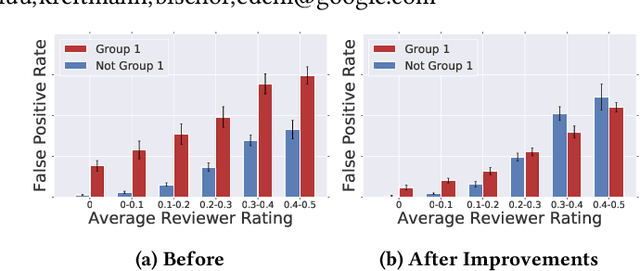Jonathan Bischof
KerasCV and KerasNLP: Vision and Language Power-Ups
May 31, 2024
Abstract:We present the Keras domain packages KerasCV and KerasNLP, extensions of the Keras API for Computer Vision and Natural Language Processing workflows, capable of running on either JAX, TensorFlow, or PyTorch. These domain packages are designed to enable fast experimentation, with a focus on ease-of-use and performance. We adopt a modular, layered design: at the library's lowest level of abstraction, we provide building blocks for creating models and data preprocessing pipelines, and at the library's highest level of abstraction, we provide pretrained ``task" models for popular architectures such as Stable Diffusion, YOLOv8, GPT2, BERT, Mistral, CLIP, Gemma, T5, etc. Task models have built-in preprocessing, pretrained weights, and can be fine-tuned on raw inputs. To enable efficient training, we support XLA compilation for all models, and run all preprocessing via a compiled graph of TensorFlow operations using the tf.data API. The libraries are fully open-source (Apache 2.0 license) and available on GitHub.
Putting Fairness Principles into Practice: Challenges, Metrics, and Improvements
Jan 14, 2019



Abstract:As more researchers have become aware of and passionate about algorithmic fairness, there has been an explosion in papers laying out new metrics, suggesting algorithms to address issues, and calling attention to issues in existing applications of machine learning. This research has greatly expanded our understanding of the concerns and challenges in deploying machine learning, but there has been much less work in seeing how the rubber meets the road. In this paper we provide a case-study on the application of fairness in machine learning research to a production classification system, and offer new insights in how to measure and address algorithmic fairness issues. We discuss open questions in implementing equality of opportunity and describe our fairness metric, conditional equality, that takes into account distributional differences. Further, we provide a new approach to improve on the fairness metric during model training and demonstrate its efficacy in improving performance for a real-world product
 Add to Chrome
Add to Chrome Add to Firefox
Add to Firefox Add to Edge
Add to Edge